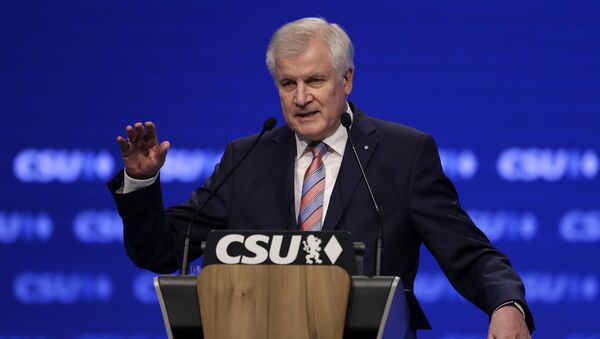Earlier Bayerischer Rundfunk reported that Markus Söder was expected to replace Horst Seehofer as premier of the Bayern CSU party.
Bayerischer Rundfunk subsequently reported on Twitter, citing new information, that it was unclear whether Seehofer would join this solution.
Later media stated via Twitter that the information was false and Seehofer remains the CSU leader.
EIL: Die Entscheidung ist nach BR-Informationen gefallen: Horst #Seehofer bleibt #CSU-Parteichef, Markus #Söder wird Ministerpräsident. Eine endgültige Entscheidung ist demnach für den nächsten CSU-Parteivorstand am 4. Dezember angepeilt.
— BR24 (@BR24) November 23, 2017
The news appeared amid the current government crisis in Germany after the negotiations on the formation of the so-called Jamaica parliamentary coalition collapsed in the country.
On Sunday, Leader of Germany's Free Democratic Party (FDP) Christian Lindner said his party had quit the coalition talks with Chancellor Angela Merkel's alliance of the Christian Democratic Union (CDU) and the Christian Social Union in Bavaria (CSU) and the Greens, making the prospects for a Jamaica coalition, named so after the parties' colors, impossible.
Germany held a parliamentary election on September 24. Merkel's ruling CDU/CSU alliance won the election with 33 percent of votes and secured 246 seats in the parliament, however failed to secure an absolute majority. The FDP came fourth with 10.7 percent of votes and 80 seats. The Greens came sixth, gaining 8.9 percent of votes and 67 seats.
The Jamaica format coalition would have had 393 mandates in total, and therefore able to establish a majority in the 709-seat parliament. The remaining options for CDU/CSU include a minority government with the Greens or a new election.


